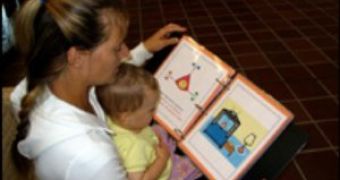Supercomputers greatly surpass humans when it comes to performing complex mathematical calculations and processing speed, but there are some things no algorithm can do, at least for now, because they require advanced learning abilities that computers simply don't possess.
Learning languages is one of these daunting tasks, where even the best supercomputers greatly lack behind human infants. Translation software are complicated and don't work all that well because they are not designed to make multiple associations and to perceive subtle deviations in pronunciation.
A new computer is trying to do just that by mimicking children's abilities to catch on to language's nuances, which have long baffled psychologists. A group of computer scientists explored this human aspect using neural-networks, computer programs in which layers of virtual neurons send messages back and forth.
The software can thus reinforce an output from similar inputs, just as the human brain strengthens its own neural connections by repetition. The first step was to gradually lump vowels and their variation in length into distinct groups by considering them one at a time, just like an infant tends to do with sounds.
Actually, the computer "has learned to recognize vowel categories from multiple English and Japanese speakers without "knowing" the number of vowels it is looking for or having a complete list of sounds to analyze," according to the report.
The software was successful in clustering vowel sounds like "beet," "bait," "bit," and "bet" into only a few vowel categories, more than 80% of the time, something that no previous applications were able to do.
"We see this work as representing a movement towards thinking about language learning as an experience-dependent process," says James McClelland, professor of psychology at Stanford University and co-author of the report.
The results could help design better speech recognition software that will be able to adapt to different speakers of the same language and thus boost its accuracy.

 14 DAY TRIAL //
14 DAY TRIAL //